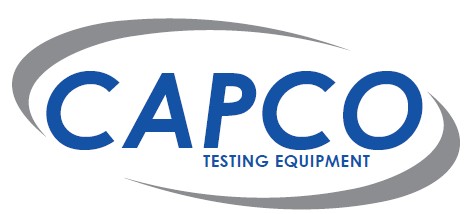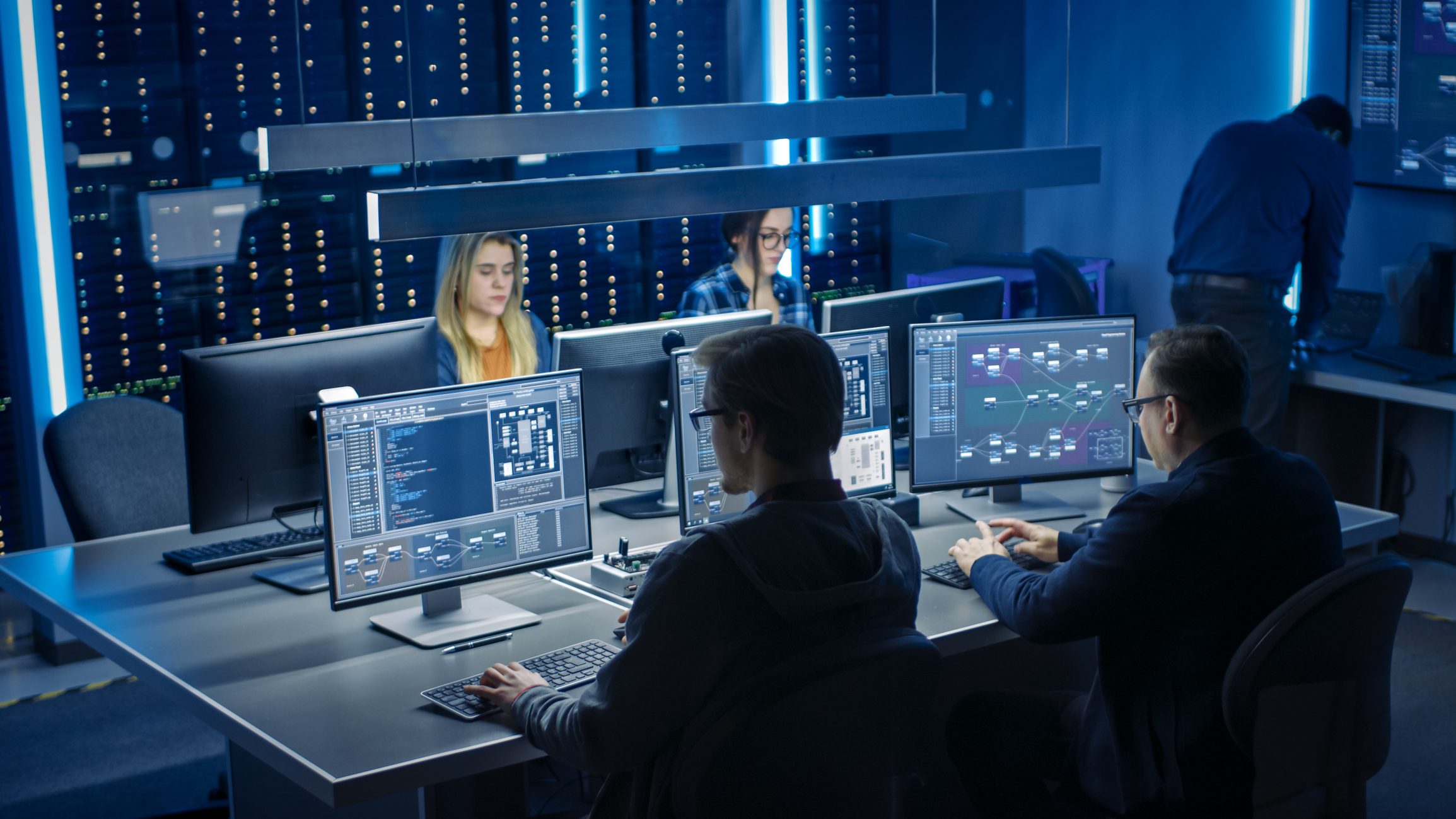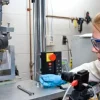Laboratory science continues to evolve at an unprecedented pace, blending traditional techniques with technological innovation. This evolution demands a parallel transformation in how we prepare emerging professionals for careers that increasingly span multidisciplinary boundaries. Moving beyond conventional education models, today’s laboratory training must cultivate not just technical competency but cognitive flexibility and collaborative intelligence.
Foundations and Forms: When concrete cube mould Principles Meet Modern Practice
Just as engineers rely on the concrete cube mould to establish fundamental strength parameters, laboratory education requires structured frameworks that test core competencies. These foundational assessments create measurable benchmarks of technical proficiency, establishing verified starting points for specialized development. Like the precisely calibrated concrete cube mould that transforms fluid potential into quantifiable strength, effective training crystallizes abstract knowledge into demonstrable skill.
The symmetry of the concrete cube mould reflects the balanced approach needed in comprehensive training – equal attention to theory and application, to precision and creativity, to individual mastery and team integration. Training protocols that maintain this equilibrium produce professionals capable of both meticulous adherence to established methodology and innovative adaptation when confronting novel challenges. This duality increasingly defines success in laboratory environments where standardization and innovation must coexist.
Modern training recognizes that laboratory professionals need both the rigidity of standardized procedure and the flexibility of adaptive problem-solving. The concrete cube mould provides a metaphor for this balance – it creates standardized forms while testing materials that must withstand unpredictable real-world stresses. Similarly, training must instill procedural discipline while cultivating resilience for the unexpected challenges that define frontline laboratory work.
Immersive Simulation Environments: Transcending Traditional Boundaries
Laboratory training now extends beyond physical workspaces into immersive simulations that recreate high-consequence scenarios without material risk. These environments allow professionals to experience rare but critical situations—contamination events, equipment failures, unexpected reactions—that practical training cannot ethically reproduce. The psychological realism of these simulations creates emotional memory pathways that theoretical instruction alone cannot establish.
Advanced simulations increasingly incorporate physiological monitoring to identify stress responses during critical decision points. This biofeedback creates personalized training profiles, identifying individual reaction patterns and developing targeted interventions. A professional who displays specific stress indicators before procedural errors receives customized resilience training focused on those particular triggers, creating individualized preparation impossible in standardized programs.
These environments also simulate temporal compression, allowing trainees to experience the long-term consequences of current decisions. A virtual contamination event might unfold over simulated weeks or months, revealing how seemingly minor protocol deviations cascade into significant downstream effects. This temporal perspective creates causal understanding that immediate-feedback training cannot achieve, particularly for processes with extended development cycles.
Cognitive Apprenticeship in Technical Mastery
The revitalization of apprenticeship models transforms knowledge transfer beyond procedural mimicry into cognitive mentorship. Expert practitioners now explicitly narrate their decision frameworks, turning implicit knowledge into articulated wisdom. This verbalization of expert thought processes the questions considered, alternatives evaluated, and risk assessments performed—transmits the invisible mental models that distinguish technical operators from true laboratory professionals.
Modern apprenticeship emphasizes metacognitive development learning how to learn within laboratory contexts. Mentors guide apprentices through structured reflection on both successes and failures, developing personalized learning strategies adaptive to individual cognitive styles. This creates self-sufficient professionals capable of continuous self-development beyond formal training periods, an essential quality in fields where knowledge evolution outpaces formal curriculum updates.
The most effective cognitive apprenticeships create bidirectional knowledge flows, recognizing that emerging professionals bring contemporary perspectives valuable to established practitioners. Mentors who actively solicit fresh viewpoints rather than merely transmitting established wisdom create collaborative learning environments that benefit both participants. This reciprocity transforms traditional hierarchy into partnership, creating laboratory cultures of continuous mutual development.
Microspecialization in Collaborative Frameworks
Laboratory complexity increasingly drives microspecialization—the development of extraordinarily deep expertise in narrowly defined domains. Effective training now cultivates these specialist capabilities while simultaneously developing the collaborative frameworks through which these microdisciplines integrate. Professionals must become both narrow experts and broad communicators, capable of translating specialized knowledge across disciplinary boundaries.
Training increasingly incorporates deliberate cognitive diversity, bringing together individuals with distinct thinking styles and educational backgrounds. These heterogeneous teams develop translation capacities across conceptual frameworks, preparing professionals for collaborative environments where diverse specialties converge. A professional comfortable navigating these knowledge interfaces often provides more organizational value than those with broader but shallower expertise across multiple domains.

The most innovative programs regularly reconfigure these collaborative teams, preventing the formation of fixed communication patterns. By continuously adapting to new collaborative contexts, professionals develop cognitive flexibility that transfers to dynamic laboratory environments. This adaptive capacity proves particularly valuable during cross-institutional collaborations where established protocols and communication styles may significantly differ.
Adaptation Protocols for Technological Integration
The accelerating pace of technological evolution demands training models focused on adaptability rather than specific tool mastery. Forward-thinking programs emphasize the metacognitive frameworks that facilitate rapid integration of novel technologies—the ability to identify transferable principles, recognize conceptual parallels, and efficiently assimilate new operational paradigms without extended formal training.
These approaches focus on identifying stable underlying principles across evolving technological implementations. A professional trained to recognize fundamental analytical concepts across diverse instrument interfaces adapts more efficiently to technological upgrades than one trained only on specific equipment operation. This conceptual rather than procedural emphasis creates resilience against the inevitable obsolescence of particular technological implementations.
The most advanced programs incorporate predictive technology adoption scenarios, preparing professionals for emerging tools before their laboratory implementation. By analyzing technology development trajectories, training can anticipate future requirements and develop preliminary familiarity with forthcoming operational paradigms. This proactive approach minimizes productivity disruption during technology transitions and positions professionals as implementation leaders rather than adaptation followers.
Perceptual Expertise Development Through Deliberate Practice
Laboratory excellence often depends on perceptual expertise the ability to recognize significant patterns or anomalies imperceptible to untrained observers. Effective training now incorporates deliberate practice regimens specifically designed to develop these specialized perceptual capabilities, transforming novice observation into expert perception through structured exposure to progressively challenging identification tasks.
Advanced programs utilize adaptive difficulty algorithms that continuously maintain optimal challenge levels, presenting cases precisely calibrated to current perceptual development. This customized difficulty progression maximizes learning efficiency by consistently positioning challenges within the learner’s zone of proximal development difficult enough to require growth but achievable enough to avoid discouragement. This precision targeting accelerates expertise development beyond what standardized training sequences can achieve.
The most sophisticated approaches complement pattern recognition with explicit anomaly training, developing the ability to identify when observations deviate from expected patterns. This “detection of absence” capability—recognizing when expected elements are missing rather than identifying present elements—represents an advanced perceptual skill critical for laboratory safety and quality control. Training specifically targeting this capacity creates vigilance impossible through traditional observation-focused approaches.
Knowledge Application in Problem-Solving
The most valuable laboratory professionals demonstrate exceptional cross-contextual thinking—the ability to recognize applicable principles across apparently unrelated domains. Innovative training now explicitly develops this capacity through exposure to diverse problem contexts sharing underlying conceptual similarities. This approach creates cognitive flexibility that transcends domain-specific thinking, enabling creative solutions drawn from parallel fields.
Advanced programs incorporate deliberate context-shifting exercises where identical principles appear in varied applications, training professionals to recognize conceptual isomorphisms beneath surface differences. A principle first encountered in microbiology might reappear in a materials analysis context, developing the ability to recognize deep structural similarities across superficially different domains. This cognitive flexibility proves invaluable when confronting novel challenges lacking established protocols.
The most sophisticated approaches explicitly teach analogical reasoning as a formal problem-solving methodology. Professionals learn to systematically identify potentially relevant parallels, evaluate their applicability, and adapt principles across contextual boundaries. This structured approach to cross-domain thinking transforms intuitive insight into reliable methodology, creating consistent innovation capacity even under time pressure or limited information conditions.
Conclusion: Cultivating Adaptive Excellence in Laboratory Science
The training of laboratory professionals stands at an inflection point where technical competence remains necessary but insufficient. Today’s laboratory environments demand professionals who combine procedural precision with adaptive intelligence, who maintain unwavering standards while navigating constant change. Meeting this challenge requires training approaches as sophisticated and dynamic as the environments they serve.
From the foundational assessments represented by the concrete cube mould to immersive simulations, from cognitive apprenticeship to microspecialization, from perceptual expertise to cross-contextual thinking these diverse approaches converge toward a singular goal: developing professionals equal to the extraordinary demands of modern laboratory science. The effectiveness of these approaches will determine not just individual career trajectories but the pace of scientific advancement itself.
As laboratory science continues its remarkable evolution, the quality of professional training becomes an increasingly critical factor in translating potential into progress. The laboratories that embrace these advanced training methodologies will find themselves staffed not just with competent technicians but with adaptive experts capable of transforming challenges into opportunities. In this transformation lies the true measure of next-generation laboratory training—not just imparting current knowledge but cultivating the capacity to create future knowledge yet unimagined.







